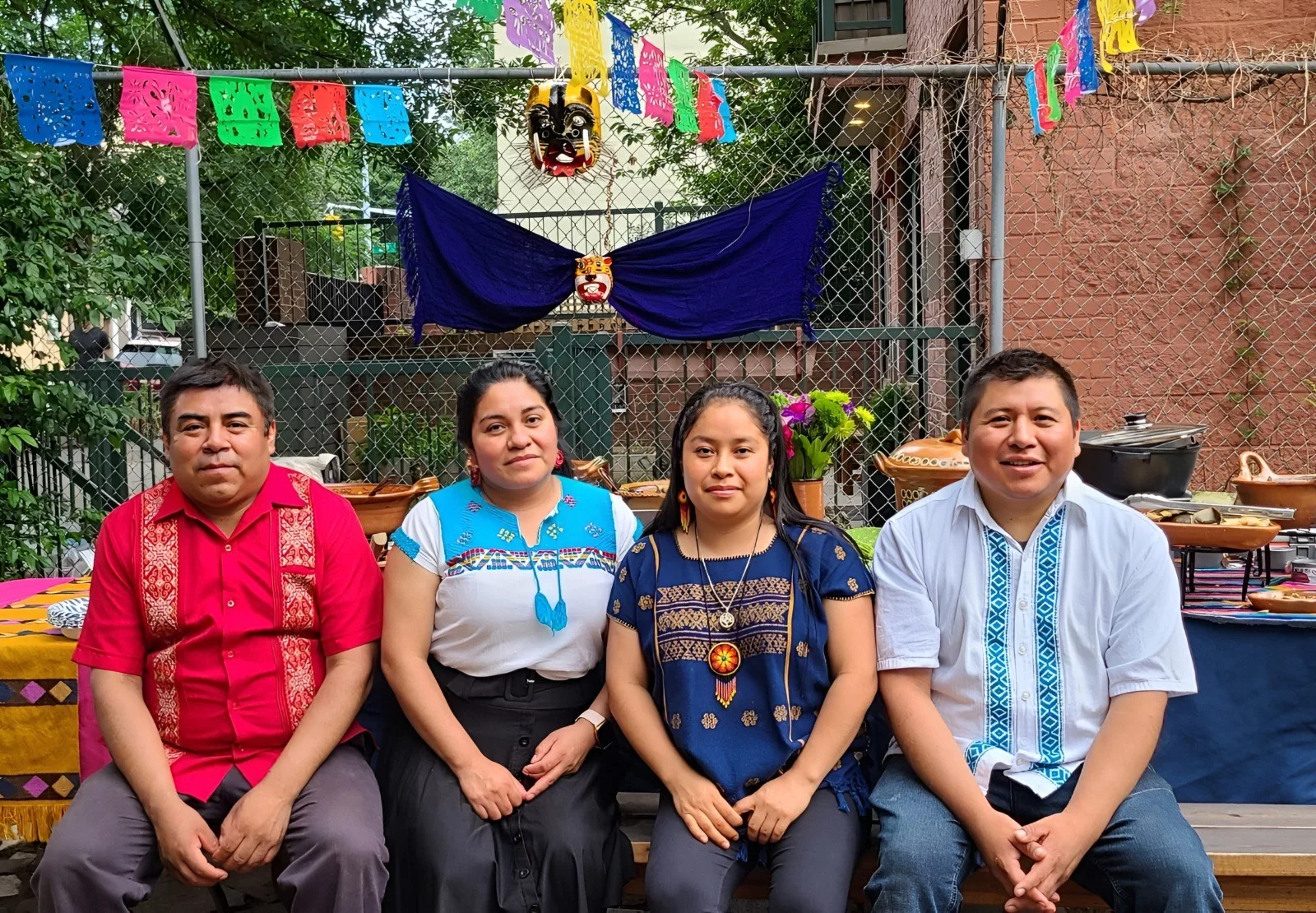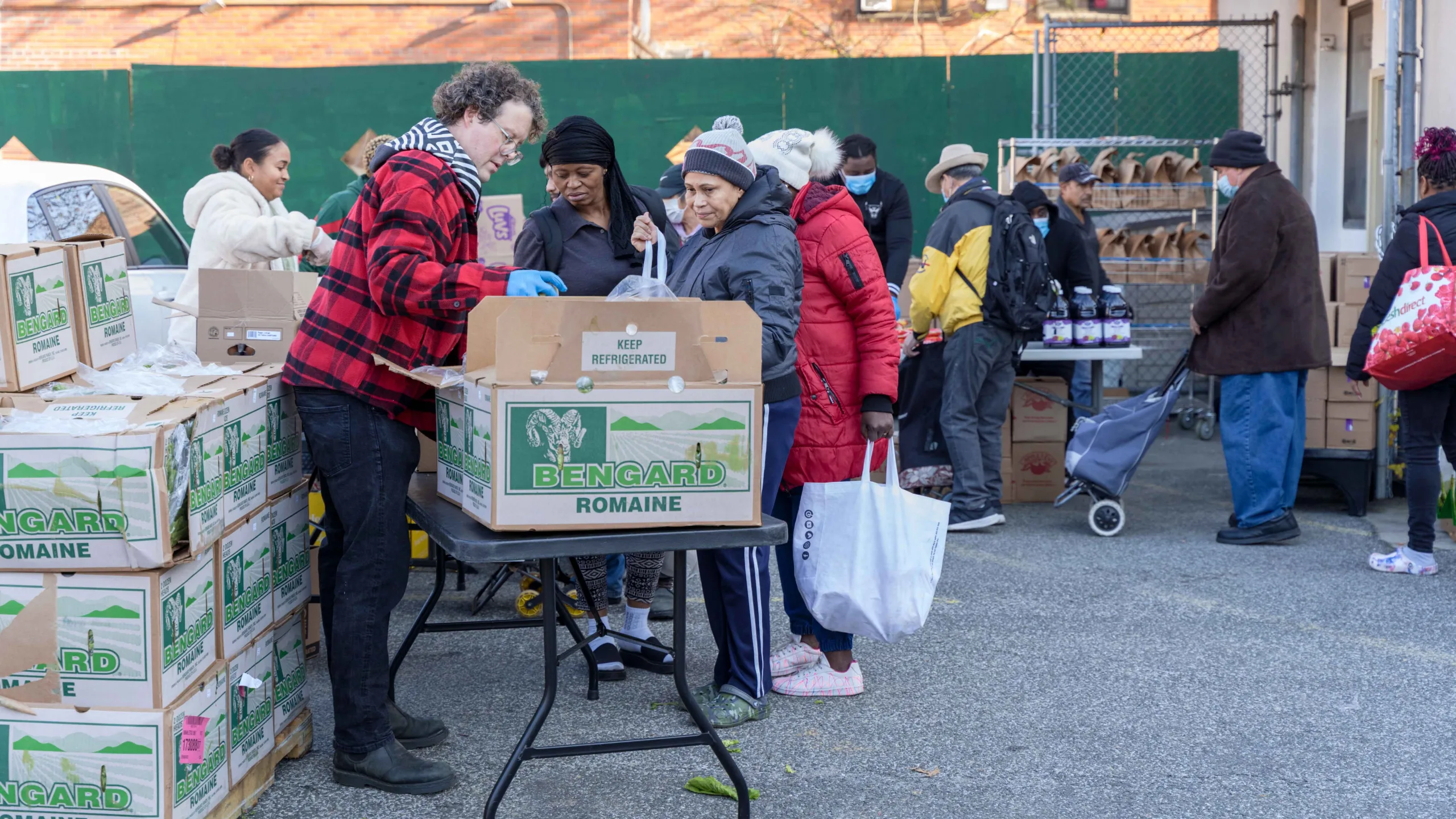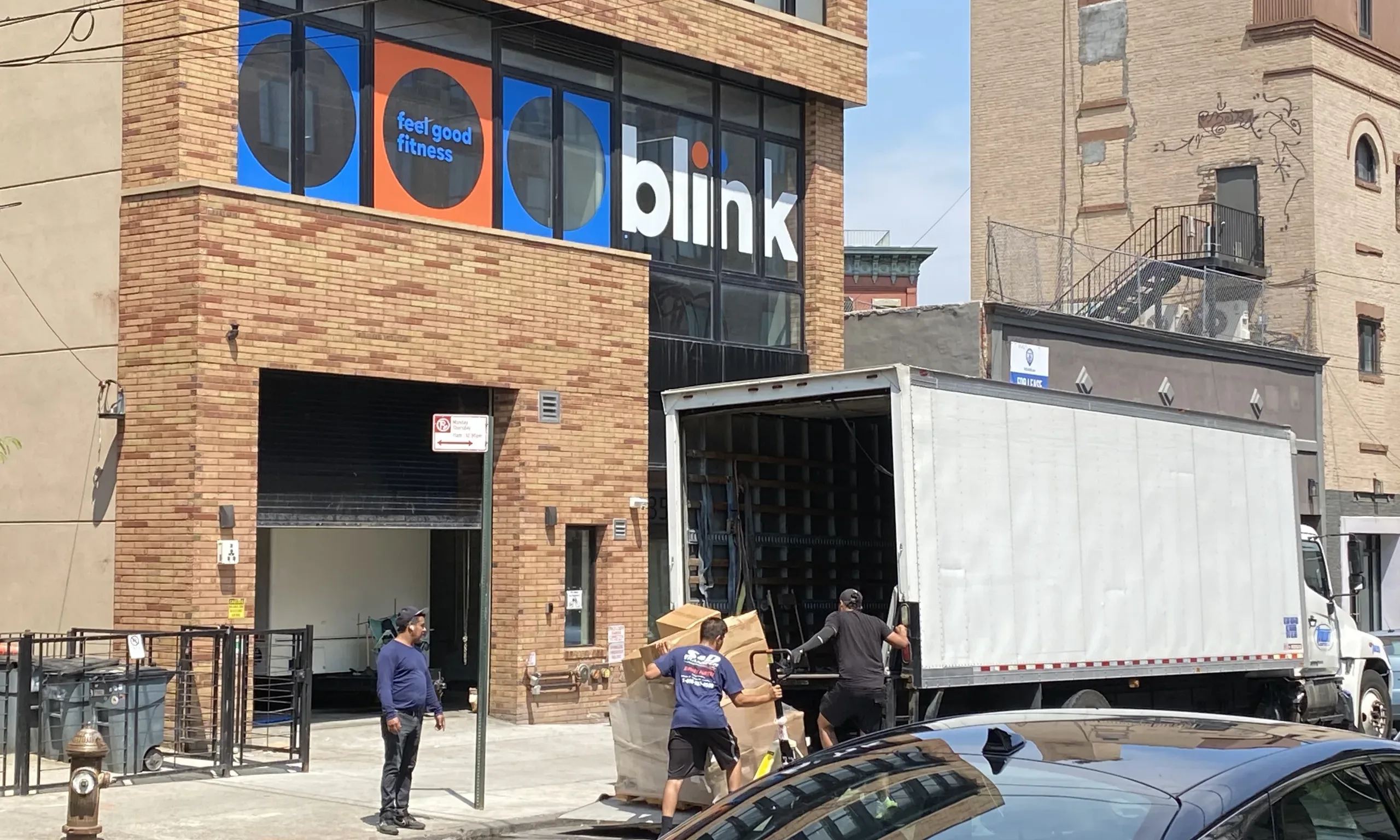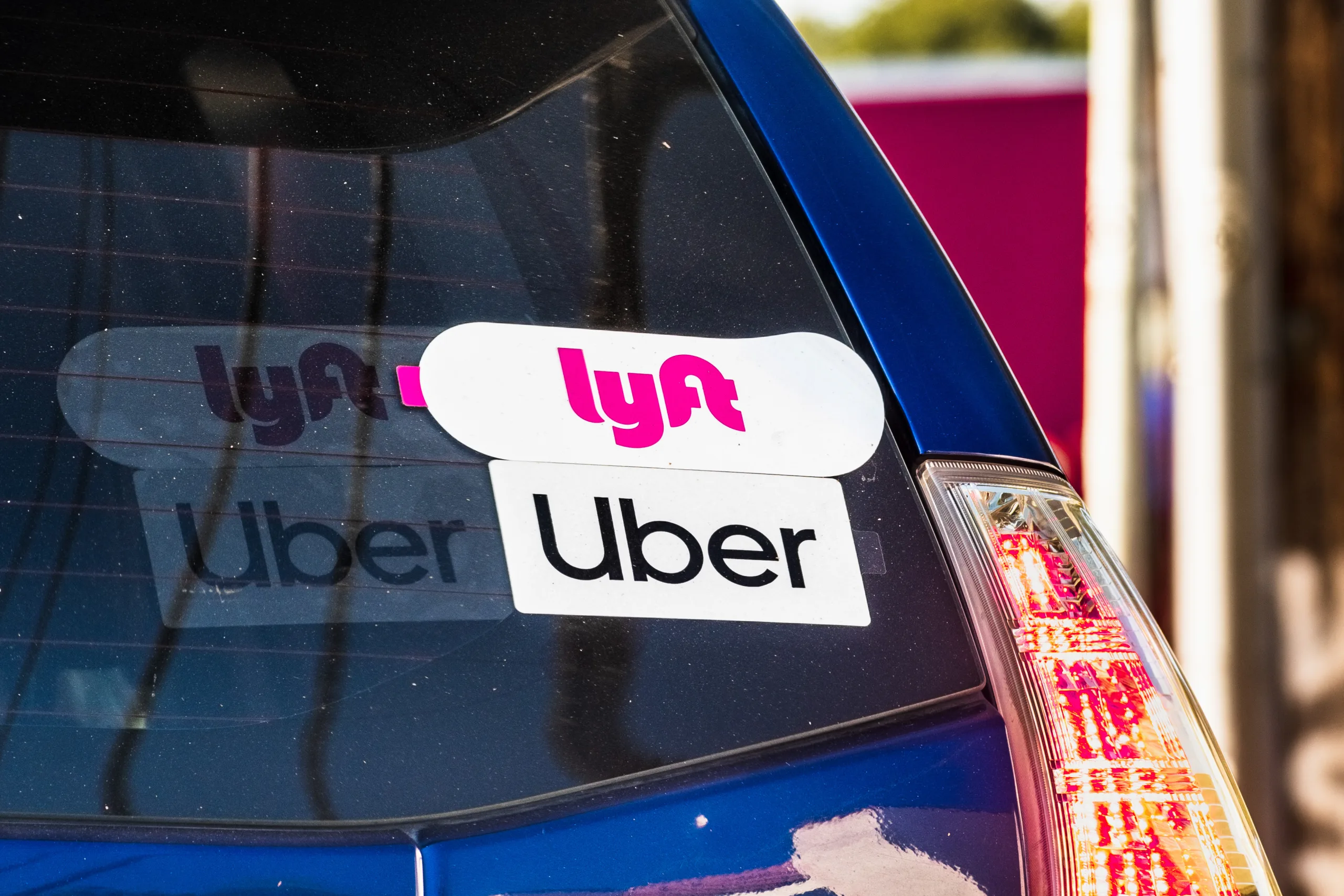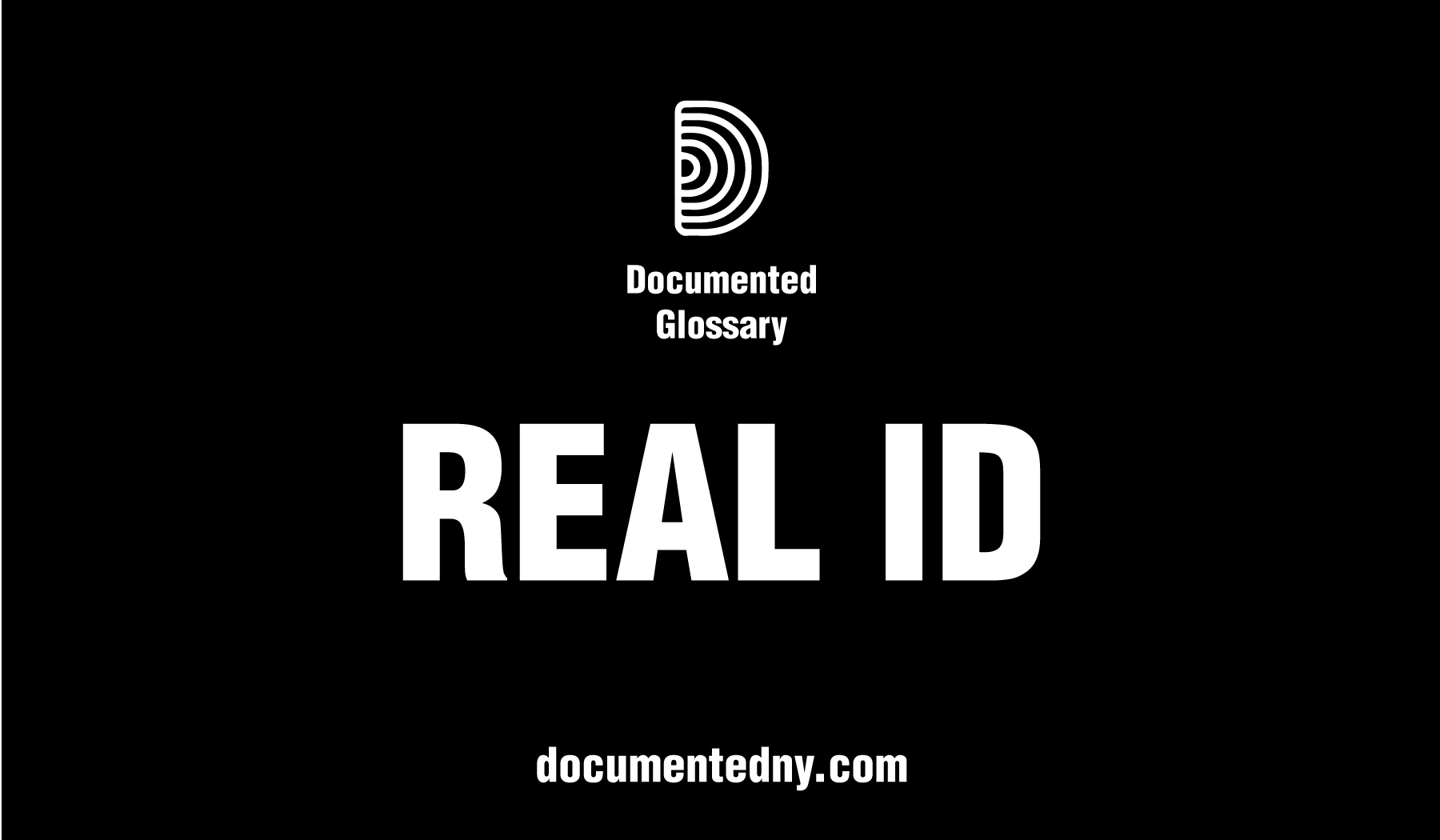This article is copublished with The Markup, a nonprofit, investigative newsroom that challenges technology to serve the public good. Sign up for its newsletters.
In 2020, Victorio Hilario Guzmán, an Indigenous Me’phaa from southern Mexico, was killed in a Bronx hit-and-run while delivering food. His brother Elías, who also works as a deliverista, set out to seek justice, but he couldn’t understand the court proceedings. They were conducted in English, and Elías spoke Tlapaneco, the Me’phaa language, and Spanish, as his second language. To understand the court proceedings, Elías relied on Google Translate or a friend’s help. Only on the last day of sentencing, Elías said, did the court provide a Spanish translator. (New York City’s Office of Language Access did not respond to our request for comment.)
During the COVID-19 pandemic, the challenges faced by marginalized communities in New York were exacerbated, especially for Elías and his community of pueblos originarios—Indigenous migrants from Mexico and other parts of the Americas. Language barriers, the spread of misinformation, and the community’s inherent distrust in the medical system, made Indigenous migrants more vulnerable, and hindered their access to public health and other services.
To help solve this problem, Elías joined up with other struggling compañeros and compañeras to fight for their right to interpretation services, and thus the Concejo de Pueblos Originarios Nueva York was born as an instrument of collective organization and as a means to combat misinformation in the Indigenous migrant community.
The Concejo participates in livestreams held in Tlapaneco, Tu’un savi, or other Indigenous languages to discuss the different social programs, public services, and other government resources available in New York, as well as talk about their own organizing work. These livestreams are then broadcast by migrant-led community radio partners, such as Noticias Hudson Valley and El Molino Informativo. And, as part of the acompañamientos—the act of being present alongside those affected—they provide live interpreters at court and organize community meetings to raise awareness about the rights of Indigenous migrants.
Members of the Concejo face their own difficulties even when translating, and go to great lengths to make sure they do not create misinformation. Yoloxochilt Marcelino, who has interpreted for community members before judges, said legal terms are especially challenging because direct translations do not exist in some Indigenous languages. A two-word phrase in Spanish might take her hundreds of words to explain in Tu’un savi. “Sometimes, the judge interrupts and asks us, ‘What are you saying?’” she recounted.
The Concejo is a horizontal support network with over 50 members, all Indigenous people from Mexico, Ecuador, Guatemala, and Honduras. The Markup spoke with four compañeros, as they call themselves, at the forefront of the Concejo: Próspero Martínez, Yoloxochilt Marcelino, Elías Guzmán, and Zenaida Cantú.
The conversation has been translated from Spanish to English and edited for clarity.
Flores: How did the idea of the Concejo de los Pueblos Originarios come about?
Elías Guzmán: My brother was run over on September 23, 2020. The following week, another compatriot was run over. Then many of my countrymen started dying in New York City, and I started calling for a vigil.
After the vigils, several compañeros organized the first assembly of the Indigenous peoples. But it was organized by several compañeros, not one person.
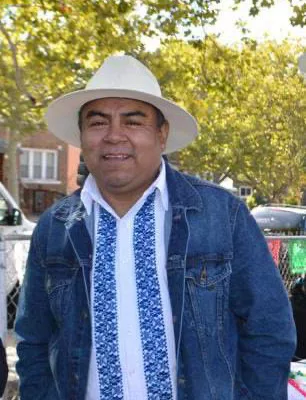
The following week [on December 27, 2020], we held a meeting here in the house where I live, and that’s where the Concejo de los Pueblos Originarios was founded. There, our struggle began. The fight was not easy.
After almost three and a half years, the person who killed my brother was convicted. It was difficult for me because I really needed an interpreter. The hearings that I attended were only in English. The last day of sentencing was when the court gave me a Spanish interpreter.
Yoloxochilt Marcelino: At that time, it was also about repatriating people who had died in their apartments. There were additionally some compañeros who brought food to the homes of people who were isolated because of COVID.
We had the idea that, collectively, all pueblos originarios could find a way to work together and resolve what was happening.
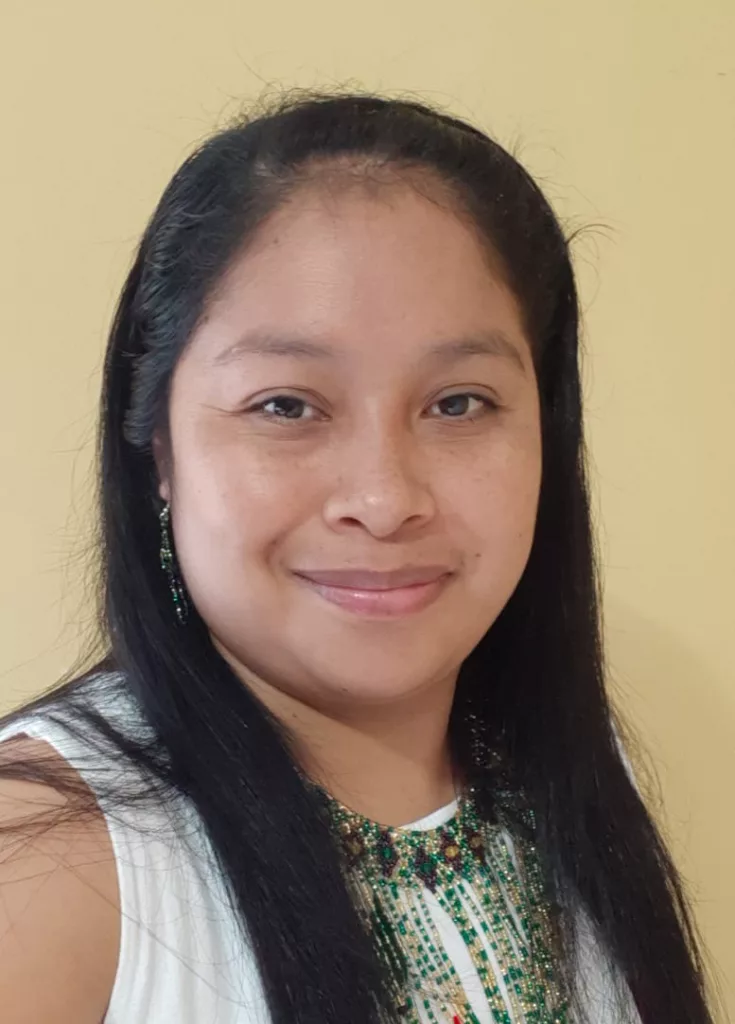
Flores: How did the Concejo help Indigenous migrants during the pandemic?
Próspero Martínez: Our role was to address doubts [the community had around health department information] and gradually build the answers. It’s important to recognize that Indigenous peoples have their own healing traditions, using medicinal herbs and alternative practices. Many people healed themselves at home using our communities’ techniques , and some think they were saved because they didn’t go to the hospital. The hospital was seen as the corridor of death.
During the vaccination process, doubts naturally arose. People questioned why a vaccine could be developed so quickly when there are other diseases that have been around for many years and still have no cure. There was enormous distrust, mainly due to a lack of full credibility in government organizations. Obviously, when we went from place to place informing people about the vaccines and trying to show that they were safe, people questioned the truthfulness of our statements and whether we ourselves believed in what we were saying.
Out of a desire to inform the community and show that the vaccines were not harmful, we chose to get vaccinated ourselves. But there are still people who have not been vaccinated to this day. There is a general lack of trust in the health system and the government.
Marcelino: The [Mexican] consulate was closed for a month [in 2020] without any services. The chaos was that everyone was trying to get an appointment. There were even people who were making appointments online and charging our fellow countrymen for the service. Some charged as much as $25. Since many of us often lack the knowledge of how to use a computer or even don’t have one, we find ourselves in the need to look for someone who can make that appointment. What we did was make a list of community members who spoke an [Indigenous] language and submitted it to the consulate. The consulate would interweave these people into the appointments that were still available. Approximately 150 appointments were made.
We have always told our people that we [the interpreters] had also struggled a bit to understand the consulate system.
(Editor’s note: The Mexican Consulate in New York did not respond to a request for comment.)
Flores: What are the kinds of things the Concejo does to support Indigenous migrants?
Marcelino: At the Mexican Consulate in New York, we assist with completing procedures, gathering necessary documents, and checking the system for existing records and documents needed for passport processing. This is a major issue for many of our countrymen. Always, always, always.
Even I have problems with my birth certificate because the local civil registry [in Mexico] registered my name incorrectly in the national civil registration system—it has “LT” where it should be “TL.”
That case happened to me recently with a person from Puebla. We went to the first appointment, but she didn’t appear in the system. We went around three times and made no progress. After this, she says, “I don’t want to be here anymore. I’ve already invested my time, all I want is my passport to go back and that’s it.”
I accompanied her to the consulate, and she was asked for proof of identity so she could leave the country. The person in charge found her in the system, and it turned out there was a typo—a “V” instead of a “U” in her last name. She was struggling with that for approximately eight years, that’s what she told me… And that was basically her torture, for all these years. She was saying, it’s horrible because she couldn’t get medical treatment, she didn’t have an ID, nothing.
Flores: One of the main services the Concejo offers is interpretation. Could you tell us about the importance of this?
Zenaida Cantú: I did not study in the city, I came to this country straight from my pueblo. When I arrived here [in New York], the surprise I got was that there is such a great need for interpretation. I knew that there was this need in my hometown [where everyone spoke Tlapaneco]. When my grandparents went to the municipal presidency or to the city to settle a matter and many of the times, they remained silent out of fear or for not knowing how to speak or express oneself [because they did not speak Spanish].
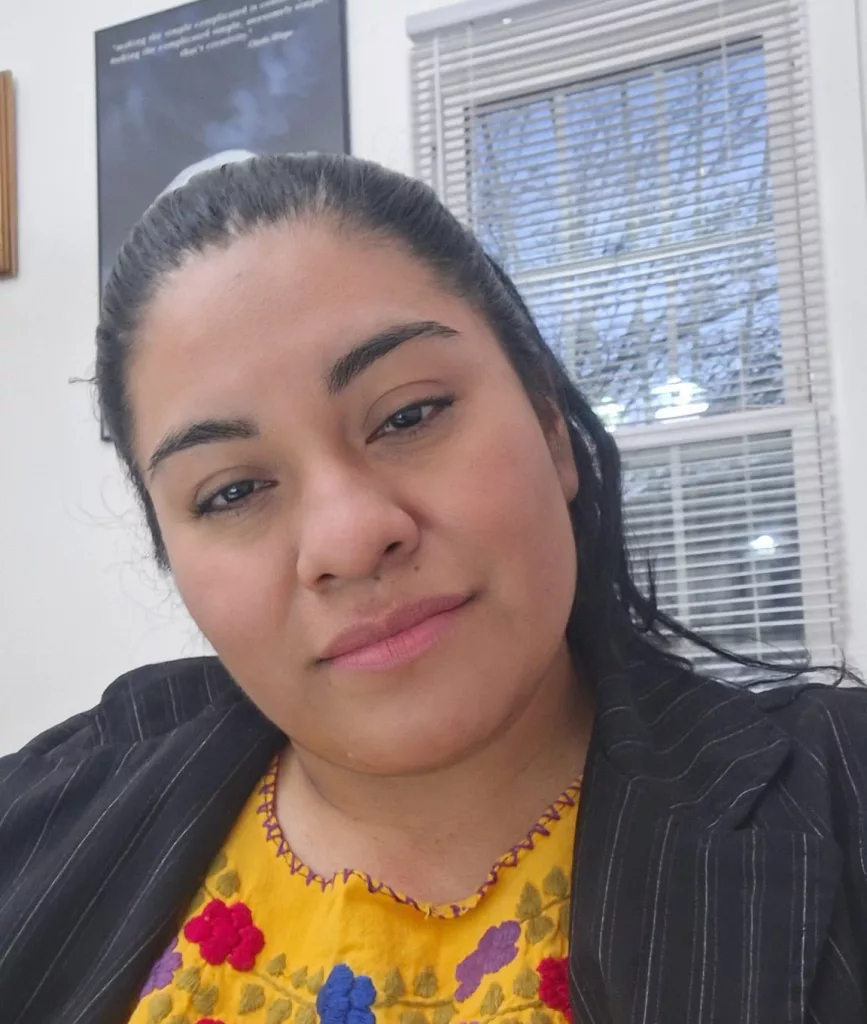
Then I get here, and the same thing happens. One of the jobs that the Concejo de los Pueblos has done is to disseminate interpretation, especially in the languages of the Indigenous peoples so that they know that there are interpreters in their languages.
Guzmán: Many of the pueblos originarios come here, to this city or the United States, and learn Spanish because due to lack of education, we did not originally learn Spanish. That is why it is very important to give them information in their languages.
Flores: What’s it like to do interpretation work within your community?
Martínez: I interpreted for someone in Arizona once. It hit me psychologically because that person was pleading [to me] for help, but in those moments I am solely an interpreter. I was not his defense attorney, and he was sentenced to 25 years for drug trafficking.
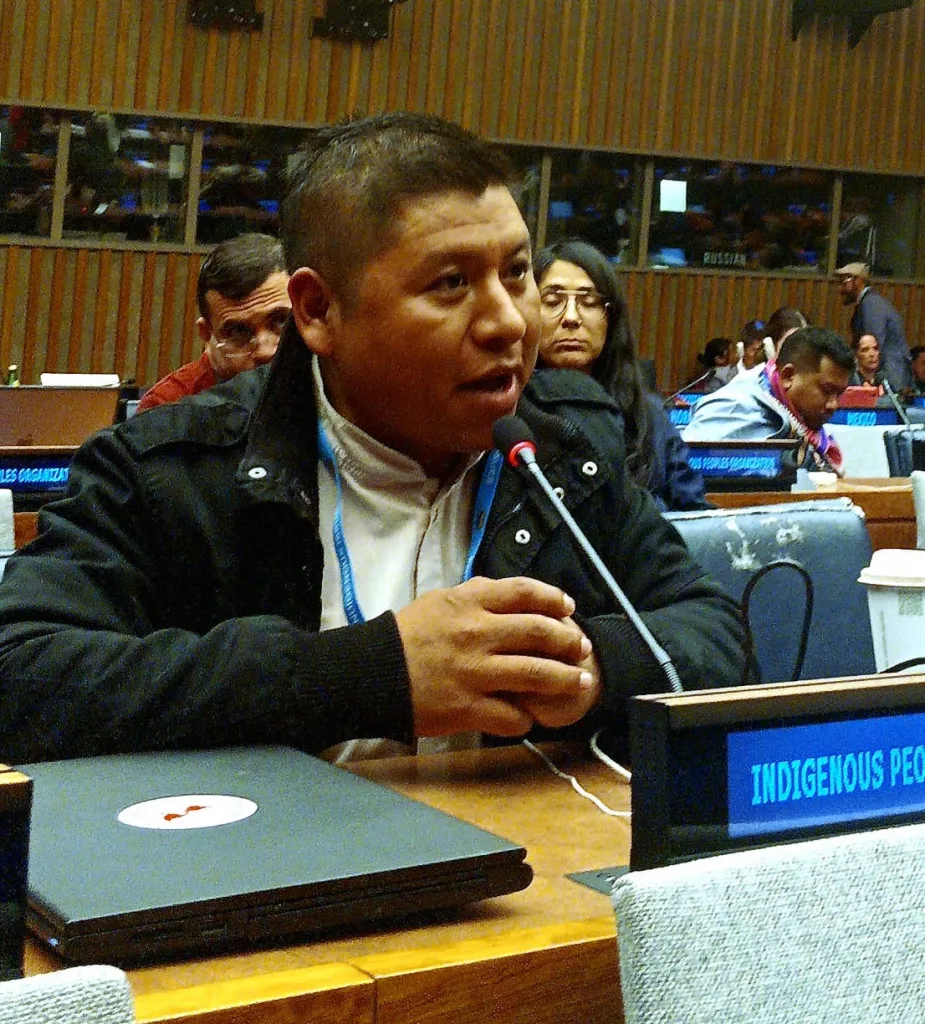
I felt bad because I told him that I’m just an interpreter. When you look into people’s eyes, and they ask you for a favor, you just have to keep sitting there.
Marcelino: I think the toughest cases that we have had are migration cases because we hear very, very difficult stories. Being an interpreter can sometimes affect our mental health. I am a mother and listening to these hardships can be overwhelming. We live it almost as if it were our own. You start thinking, “What if this happened to my children?”
Guzmán: I have taken many trainings, but I simply had not dared to do interpretation yet. I did my first one [in May], but I still have fear of doing it in court. It was easy because it was a 16-year-old boy who was brought to the border and he requested asylum. So the social worker simply interpreted his rights. There was no interpretation from Tlapaneco to Spanish, only from Spanish to Tlapaneco. They just told him to listen to his rights, what he should do, that there is a sponsor in the United States who is going to receive him and that he is the one in charge of delivering him to his family. Then, they told him that later he would have to go back to court. So I asked the social worker to speak short phrases to me so I could interpret it in Tlapaneco. First, I had to talk to him to see if he understood my language, if it is the same variant that we speak.
Flores: What are the challenges of translating from Spanish to an Indigenous language?
Marcelino: Appearing before a judge is difficult because there are certain legal terms and pronunciations that are very challenging to translate into our communities’ languages. But you can’t quit. How can I quit if this person needs me to get out of here?
It is a complex situation for us because, many times, even we are questioned when we’re before the judge. In court I might hear two words, and the interpretation requires 200 words. You explain to the person that the judge is asking if they accept the charges for committing a crime by entering the country illegally and to say the reason why you are here. Then, sometimes, the judge interrupts and asks us, “What are you saying?”
We have to explain the [legal] words because there is no direct translation. You cannot say it as if it were from Spanish to English because if you translate it literally, that person will not understand it. I have an ethical duty. I know that I have to make this person understand what their rights are. That’s why I’m here.
Guzmán: In our languages it is difficult to explain rights, laws, and all those things. Those concepts do not exist. In the medical field, it is the same with diseases. We spent a year working with a linguist, writing disease [descriptions] in our language. For example, there’s no word for “virus.” I told him that it is such a small animal that you can’t see it with your own eyes. But it is an illness, so he does not agree as I say it. He does not want it to be a small animal because when you say a “small animal,” then it alters the information, right? But in my language, that doesn’t exist. In my language, it is something small that you cannot see with your own eyesight.
But it is complicated to build a word. So I can’t name something because people won’t understand me.
Flores: How do you manage to sustain this work with all other responsibilities?
Cantú: When requested by agencies or courts, interpretations are paid for.
Guzmán: Everyone uses their own money to cover expenses when we travel or accompany the community. We volunteer our time regardless of the job we have so we can provide support to all the people who need it.
Cantú: It is not easy to navigate these struggles if you also have responsibilities at home, and even more so if you want to focus on personal development. It’s not easy because sometimes you have to make time. When I see these difficult cases towards my community, that is when I feel the encouragement to continue fighting, to continue preparing and developing as an Indigenous woman. And inspire other women, other peoples, as well.
Flores: What has it been like to be part of this council as an Indigenous woman? What are some of the situations that particularly affect Indigenous migrant women in New York?
Marcelino: Where I am originally from, there was not such a large participation of women within the community. This space has allowed us to talk with our people and listen broadly. In conversations, it has emerged that the main barriers were ignorance of how the city worked. Unfortunately, some women suffered domestic violence, and they could not have a job or could not move around because their partner oppressed them economically. And those conversations led us to realize that bringing women together to get to know each other and talk is helping bring about change.
These conversations happen when their child is in school, or they have already had the opportunity to get to know the city’s surroundings a little more. In these spaces, people share, “I went through this situation or lived this situation.” It is difficult to have a space in which you can ask for information about how you can help yourself not suffer this violence.
Flores: How do you reach the community typically?
Cantú: We go to places where we are invited, which usually are close to where we live in the Bronx and Brooklyn. But in other boroughs like Staten Island or Queens, or other distant places that are closer to the outskirts of the city, the information does not reach the community the way it should.
For example, farmworkers who work in Staten Island or New Jersey. These are people who sometimes don’t know what to do with their documents, or how to register when they need something. That is the work we try to expand, and we always try to convey the community’s needs [to various institutions] due to not knowing the systems here.
TestPost3
Get in touch with the Concejo de Pueblos Originarios Nueva York via Facebook.
Correction, July 15, 2024: A previous version of this story misstated the language that Yoloxochilt Marcelino used in court. It is Tu’un savi.
